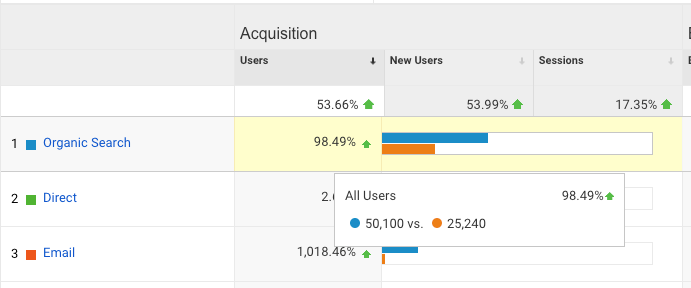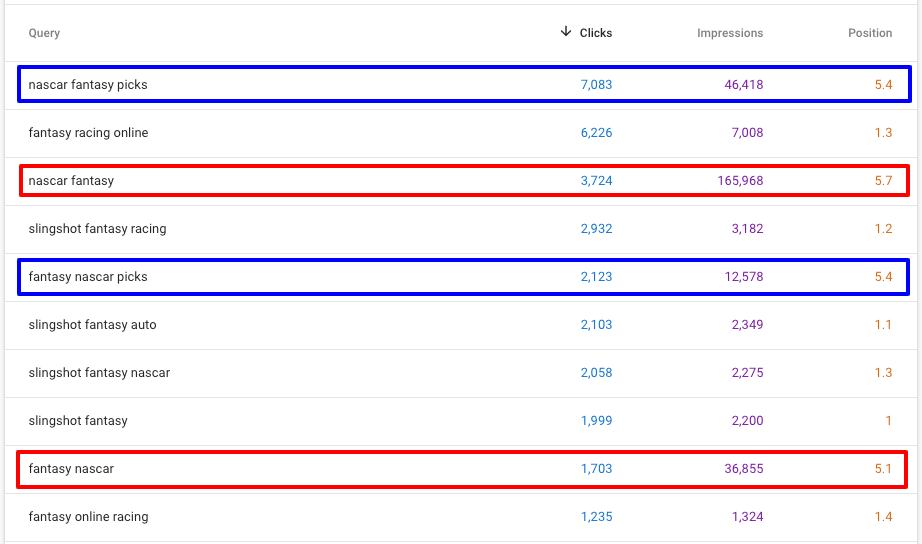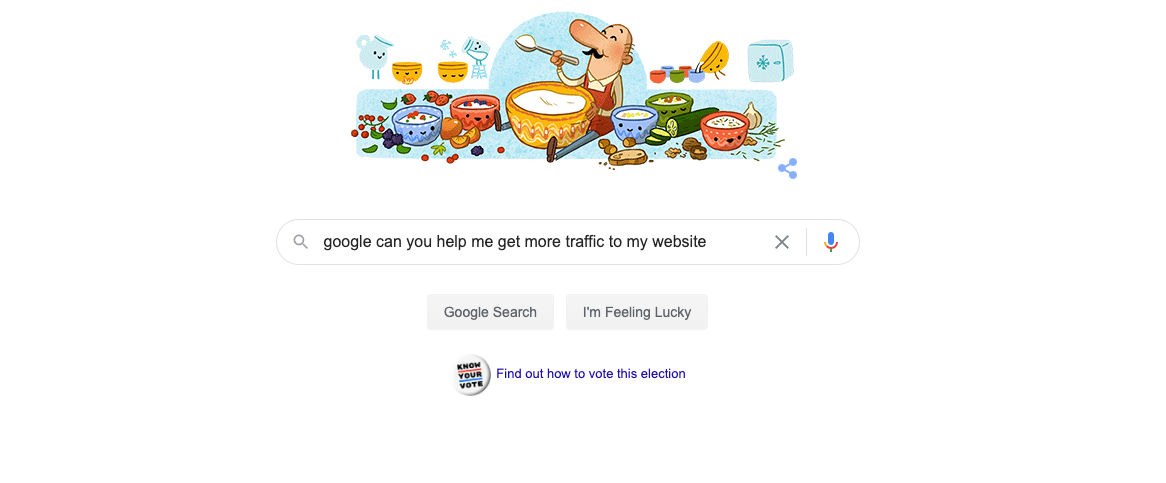I say tomato (tuh-MAY-toe).
You say tomato (toe-MAHT-oh).
Communication is a wonderful and essential tool that all of us use every single day. But to say that it doesn’t have challenges that come along with it would be a lie–and I’m not just talking about the same word being pronounced in different ways.
Take texting for example. How many times have you misinterpreted the meaning of a text message? Maybe the sender meant to emphasize a specific word, which changed the point of the text. Maybe there was a hint of sarcasm in the sender’s mind that didn’t make it to you, the reader. What’s crystal clear to one person could be clear as mud to another.
But what does this have to do with Search Engine Optimization (SEO)? Since, you know, that’s kind of what this blog is about. Well, probably a lot more than you think. Let me explain.
My Own SEO Mistake
You may or may not know that I run a moderately successful Fantasy NASCAR website. I started it in 2012 with an email list of about 100 people. By 2020, that email list has grown to over 10,000 people with the website garnering millions of pageviews. All of this growth has been achieved through consistent and in-depth content as well as organic social media marketing. I rarely spend money on advertising unless I want to run a test.
But even with this rapid growth, there have been several mistakes made. Most notably is a mistake that has been staring me in my face for a couple of years, but one I never paid much attention to: the failure to recognize how my audience is actually searching for my content.
I have always referred to my niche subsection of the fantasy sports world as “Fantasy NASCAR.” The media group of NASCAR even made a push a couple years back to get more people to use the #FantasyNASCAR hashtag throughout social. But here’s the thing: the vast majority of people search for “NASCAR Fantasy” … not “Fantasy NASCAR.”
That can’t make that much of a difference, though…right? It’s the same two words, just switched in order.
Personally, I didn’t think it was a big deal. But over the years, my Google Search Console always had a clear distinction between the two specific terms, so for the 2020 year I decided to make a conscious effort to use “NASCAR Fantasy” more in place of “Fantasy NASCAR,” especially in important SEO items such as post titles.
The results? My traffic from Organic Search, such as Google, DOUBLED from 2019 to 2020. To the tune of TWENTY-FIVE THOUSAND additional users coming to the site just from search. Oh, and let’s not forget that this increase happened during a year where traffic to my site was at an absolutely standstill for nearly three months thanks to the pandemic.

Checking in on Google Search Console, and yep, it is blatantly clear the difference in these two search terms when it comes to results. You can see the screenshot below, but to recap, the search term “NASCAR fantasy picks” generated over 7,000 clicks from Google to my website this year, while “fantasy NASCAR picks” generated just over 2,000. With “NASCAR fantasy,” the results were similar but not as wide: 3,724 clicks compared to 1,703 clicks from “fantasy NASCAR.”

The SEO Strategy to Increase Organic Search Traffic
When it comes to your business and your business’s website, you have to remember one thing: your customers and target audience probably aren’t anywhere near as well-versed and knowledgable about it as you are. You need to cater to their level of comprehension on the subject and form your content marketing around that strategy. That is done in two ways.
First, you probably need to dumb down your vocabulary. Sorry, but it is true. For example, if you’re a doctor office specializing in mild heart attacks, you wouldn’t base your keyword strategy around “non-ST elevation myocardial infarction treatment.” If you did, only other doctors would know what in the world you’re talking about, and they’d also be the only ones that find you online. You would base your strategy around “mild heart attack treatment.”
Once you nail those down, you have to stay on top of what the trends are and make sure that your keywords continue to align with the actual searches that people are making. This is the part that I screwed up with my website in the example earlier.
It’s easy to get caught up in your business and not think about these minor details, especially when it comes to your website. But as I showed before, they can make a major impact on your traffic, which should then also make an impact on your sales.
With Search Engine Optimization, it tends to be a moving target that is always changing. There are plenty of free (and premium) resources available to conquer it, but it takes time–something that you maybe don’t have. The good news there is that Jellison Group Ohio is here to help and get your website on track to ranking higher on Google and generating more organic traffic for you. Contact Us now (click here) and get started on a plan to improve your website today.













